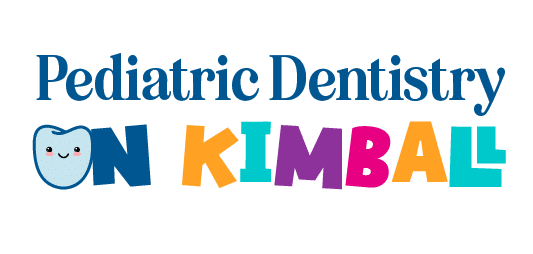Tooth sensitivity in children is more common than many parents realize—especially here in Brooklyn, where city life brings plenty of exposure to sugary treats, acidic drinks, and fast-paced routines. If your child winces when eating ice cream or complains about brushing their teeth, sensitivity may be the reason.
At Pediatric Dentistry on Kimball, we understand how concerning it can be when your child experiences pain. That’s why Dr. Lionel Vera, board-certified pediatric dentist, created this guide—to help Brooklyn families manage tooth sensitivity at home and know when it’s time to visit a professional.
This Article Will Address:
- What causes tooth sensitivity in children in Brooklyn
- How to care for your child’s sensitive teeth at home
- When to seek help from a pediatric dentist
- Whether tooth sensitivity is normal in children
- How Pediatric Dentistry on Kimball can provide relief
What Causes Sensitive Teeth in Children in Brooklyn, NY?
Tooth sensitivity happens when the inner layer of the tooth, called dentin, becomes exposed or irritated. In kids, this can happen for several reasons:
- Enamel erosion from acidic drinks like juice or soda, or from overly aggressive brushing
- Cavities or cracked teeth that expose sensitive areas
- Gum recession, which can reveal the tooth root in teens
- New tooth eruption, especially molars, may temporarily cause mild discomfort as the tooth remineralise as the tooth newly erupts.
- Dental trauma from falls or sports injuries
- Local lifestyle habits, including sugary street snacks or skipping brushing in a busy schedule
Understanding the cause is key to finding the right solution—and at our office, we help parents pinpoint the issue with compassionate, expert care.
How Can I Help My Child With Sensitive Teeth at Home in Brooklyn?
While professional care is essential, there are several steps you can take at home to reduce your child’s discomfort:
- Use a soft-bristled toothbrush and encourage gentle brushing motions
- Choose a fluoride toothpaste made for sensitivity (look for the ADA Seal of Acceptance)
- Avoid foods and drinks that are too hot, cold, or acidic
- Rinse with lukewarm salt water to ease gum inflammation or Mouthwash
- Monitor your child’s sugar intake, especially sticky or sour treats
- Keep a daily pain log to track what triggers sensitivity and share it with your dentist
Small daily changes can go a long way toward improving your child’s comfort—and building long-term oral health habits.
Are There Pediatric Dentists in Brooklyn Who Treat Sensitive Teeth?
Absolutely—and Pediatric Dentistry on Kimball is proud to be one of them.
Dr. Lionel Vera specializes in children’s oral health, including diagnosing and treating sensitivity. Our anxiety-free office offers Nitrous Oxide (“laughing gas”) to help kids stay calm and comfortable during care.
We take a comprehensive, educational approach:
- Gentle diagnostic evaluations
- Fluoride treatments to strengthen enamel
- Dental sealants to protect vulnerable teeth
- Restorative treatments for cavities or cracks
Our goal is to make every child feel safe, understood, and pain-free—especially if it’s their first dental visit.
When Should I Take My Child to a Brooklyn Dentist for Tooth Sensitivity?
Sensitivity can sometimes pass on its own—but in many cases, early dental treatment is best. Schedule a visit if your child has:
- Pain that lasts more than a few days
- Trouble eating, brushing, or sleeping due to discomfort
- Teeth that look discolored, cracked, or worn
- Other symptoms like swelling, fever, or bad breath
Our office provides same-day emergency care for children who need relief fast. Don’t wait—early intervention can prevent more serious dental issues down the road.
Is Tooth Sensitivity in Children Common in Brooklyn, NY?
Yes—especially in an active, diverse community like Brooklyn. From cultural foods to busy routines, kids here face several factors that can contribute to sensitivity.
Common contributors include:
- High-acid diets from citrus, soda, or candies
- Inconsistent brushing routines due to school or activity schedules
- First-time visits where underlying issues like cavities are uncovered
At Pediatric Dentistry on Kimball, we frequently help families manage these challenges and guide children toward stronger, healthier smiles.
When to Trust a Pediatric Specialist for Lasting Relief
Pediatric dentists like Dr. Lionel Vera undergo years of specialized training focused on children’s development, comfort, and long-term care.
Why choose a specialist?
- Dr. Vera completed his pediatric residency at Maimonides Medical Center right here in Brooklyn
- He’s board-certified by the American Board of Pediatric Dentistry (ABPD)
- He’s a proud member of the American Academy of Pediatric Dentistry (AAPD), American Dental Association (ADA), and the College of Diplomates of the American Board of Pediatric Dentistry.
- Our practice emphasizes trust, education, and honesty, so your child feels empowered—not fearful—about dental care
Help Your Child Smile Comfortably – Pediatric Dentistry on Kimball Can Help
Tooth sensitivity can be stressful for both children and parents—but it doesn’t have to be.
At Pediatric Dentistry on Kimball in Brooklyn, NY, we combine expert care with a comforting approach designed for young patients. Whether your child needs a routine check-up or immediate relief, Dr. Lionel Vera and our caring team are here to help.
Call today or schedule online to start your child’s path toward a pain-free, confident smile.
Sources:
- American Dental Association (ADA) – MouthHealthy: Tooth Sensitivity
- American Academy of Pediatric Dentistry (AAPD) – Oral Health Policies
- Mayo Clinic – Tooth Sensitivity Overview

Dr. Lionel Vera
Dr. Lionel Vera brings warmth, expertise, and advocacy to Pediatric Dentistry on Kimball as a board-certified pediatric dentist. He earned his dental degree from the University of Puerto Rico, Medical Science Campus, followed by a residency at Kingsbrook Jewish Medical Center, where he honed his skills with children and special needs patients. A Brooklyn-based pediatric dentist since 2018, Dr. Vera blends compassionate care with a strong focus on educating both children and parents about oral health. Dr. Vera’s mission: to inspire a lifetime of healthy smiles through trust, education, and proactive care.

